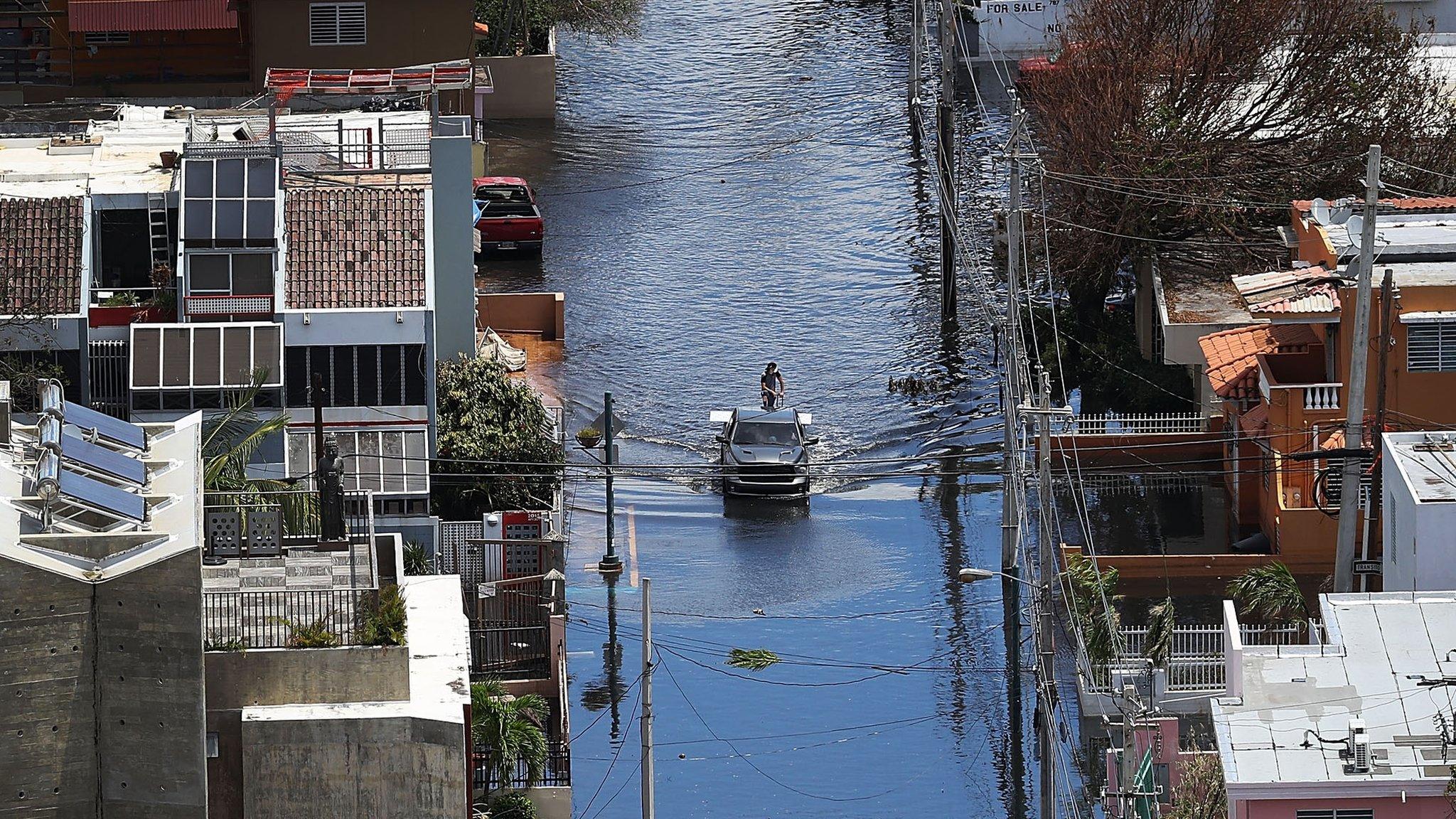Trump rates recovery A+ but Puerto Ricans 'losing hope'
- Published
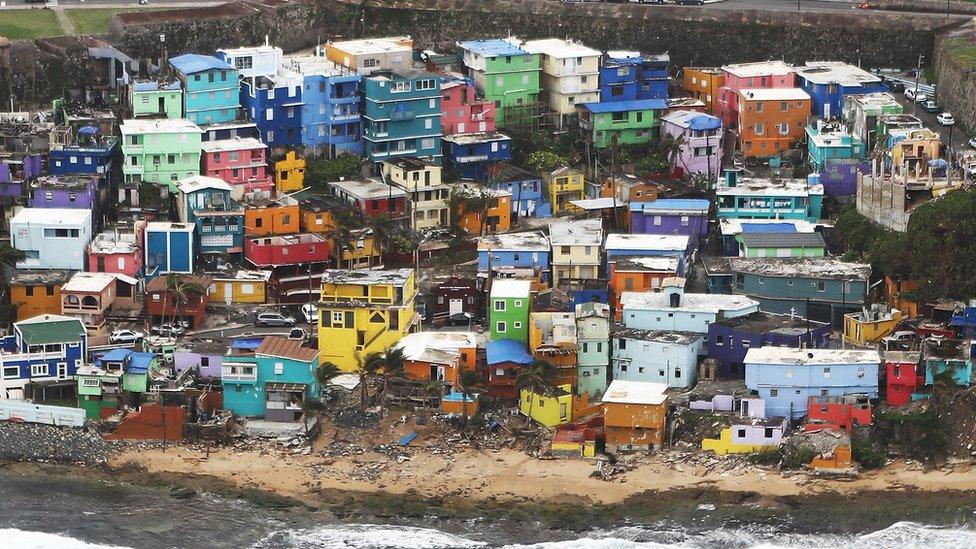
Puerto Rico experienced widespread damage after Hurricane Maria swept through in September
When Hurricane Maria hit Puerto Rico, Sofia Abregu became trapped in a seafront apartment overnight and her mum's house in San Juan was partly destroyed.
Sofia, who is 26 and a housekeeper, has spent the last month documenting her recovery and sharing it with the BBC.
On Thursday, US President Donald Trump classed the government's relief efforts on the island as "A+". Here, Sofia gives her verdict:
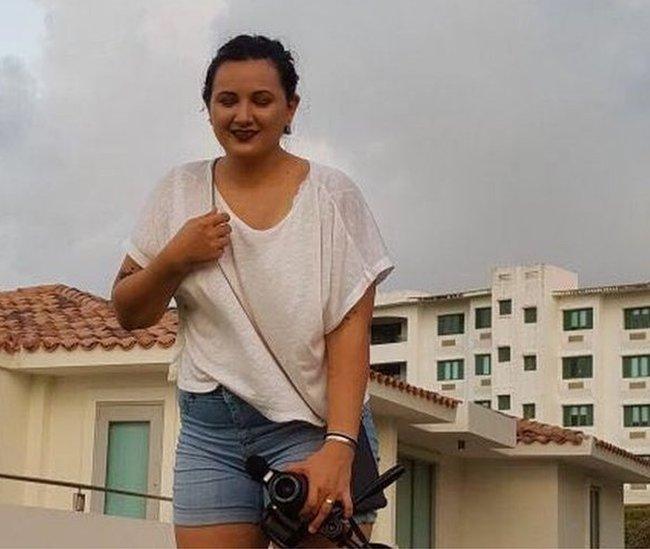
Sofia Abregu, 26, is a student and house keeper in San Juan
I think a big part of the island is losing hope.
The power is still not on. Some parts of the island are getting power but it's not fully stable.
Debris in the Toa Baja area of San Juan where I live is not being picked up yet - the municipality had to first clear a clandestine garbage dump that residents made.
It brought a plague of rats, cockroaches and deadly bacteria. I was told that an 11-year-old died because of it last week.
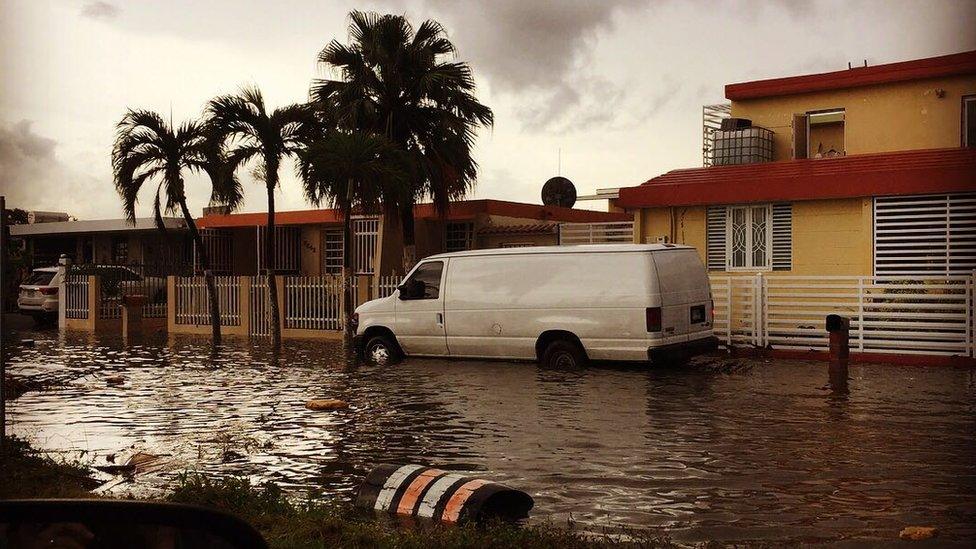
Unrecovered debris in the streets is causing flooding when it rains, says Maria
Debris in the tourist parts of San Juan is being removed but not in the other worst-hit parts. But the Cataño area is clean - the mayor has done an amazing job.
My place was one of the really damaged houses in the hurricane when a dam burst in Tao Baja, external.
Flying debris broke the wooden roof and ripped out electric wires, while concrete parts of the house cracked, too. It's been raining inside the house.
Contractors told me the repairs will cost $20,000 (£15,170) alone. I cannot afford this.
The one update I can give you is that we managed to get the tarps for the roof and I actually installed them today.
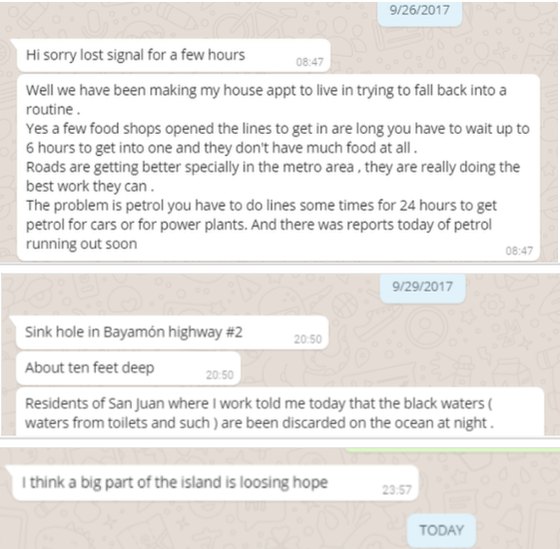
Sofia has been sharing her recovery from Hurricane Maria with the BBC for the month since the disaster
Schools are closed - most are being used as shelters, so they are figuring out how to still provide that service and to keep children safe.
I heard on the radio that some schools should be open by today, others by next week.
Hospitals are open and working to the maximum capacity. Most of the hospitals were hit pretty hard but they are doing their best, especially dealing with the dead.
I have to say that the armed forces and police are doing their best to keep things under control and making sure people get the supplies they need.
The shelter near me is providing food, water, hygiene and even Clorox.
Mobile-phone signal is still bad but it's getting better - towers are being repaired around the island to make sure that everyone can communicate.
It will take time to reach places, which is making people angry, but the authorities are truly doing the best that they can from what I've seen.
As told to Georgina Rannard, UGC & Social news
- Published19 October 2017
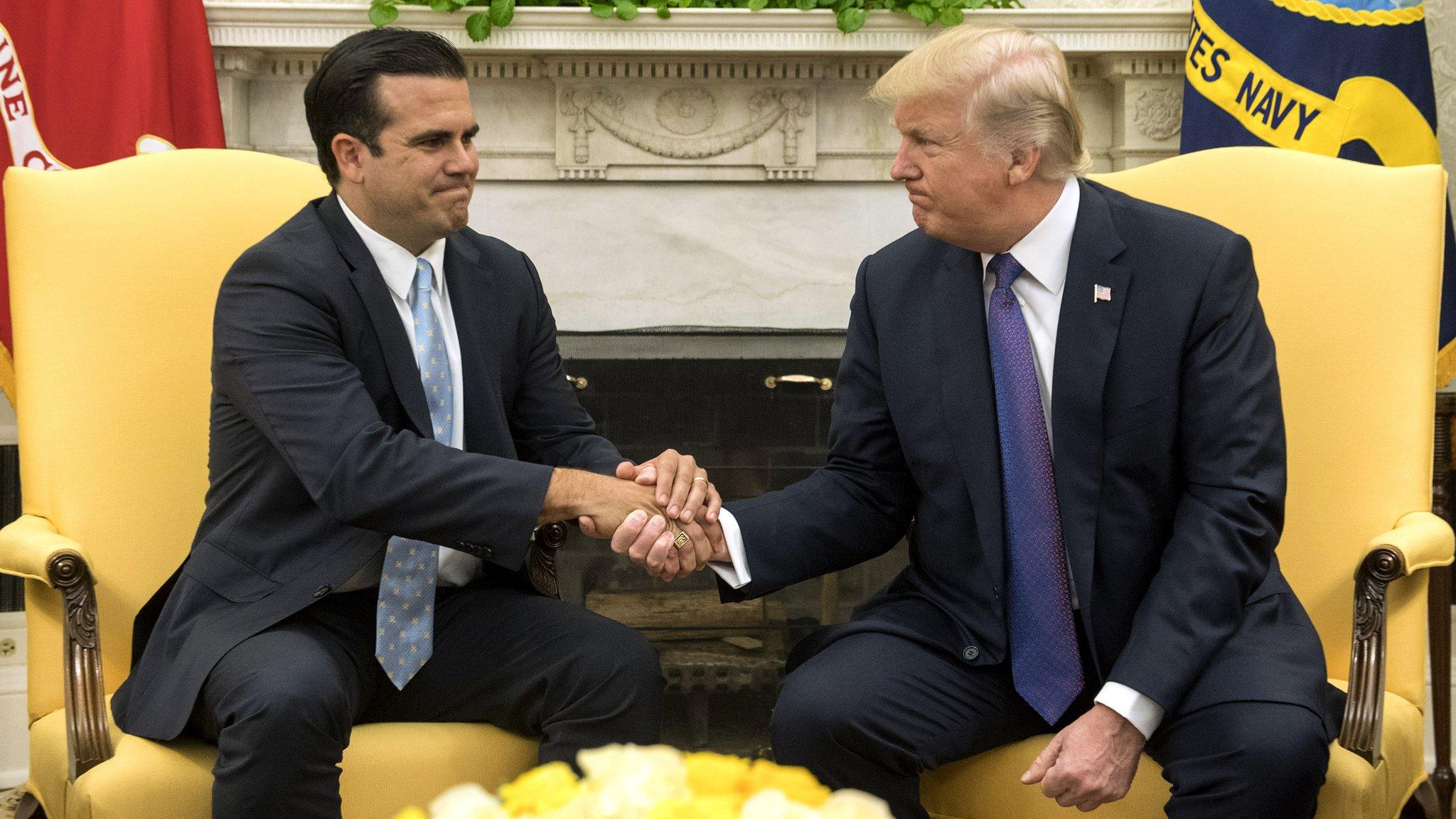
- Published27 September 2017
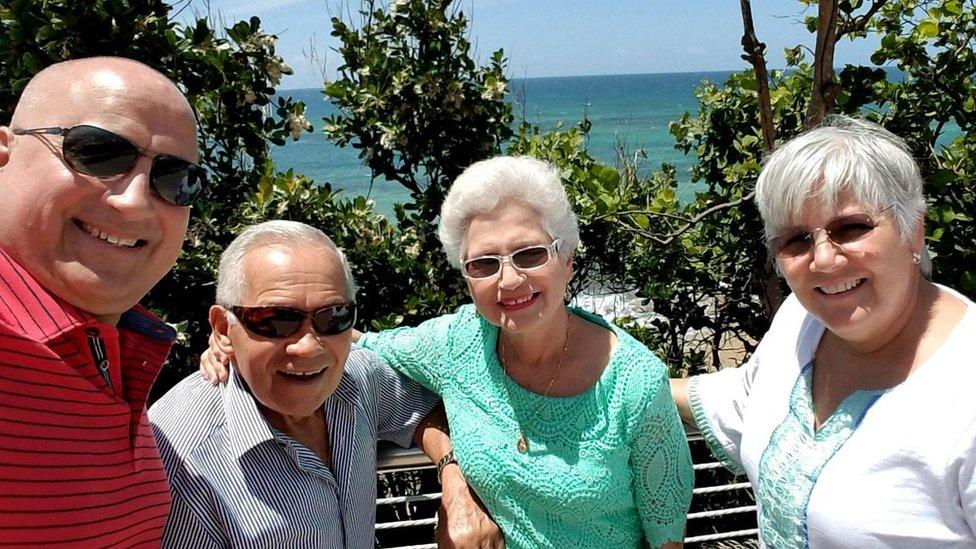
- Published26 September 2017
